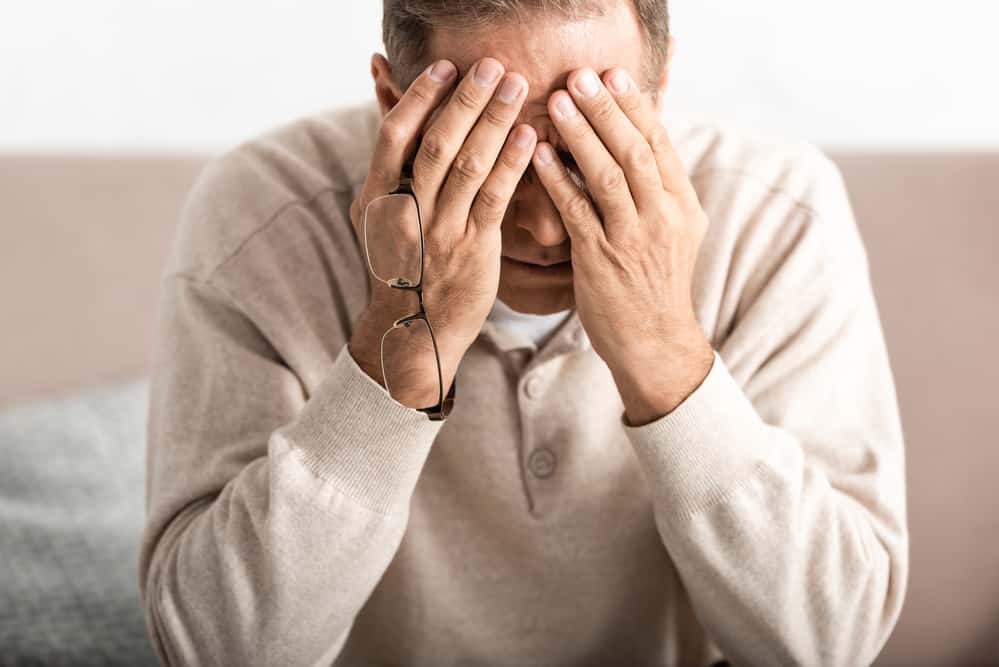Just because you’re at home right now doesn’t mean that you won’t have to talk to your doctor or refill medication. And when it comes to our mental health, many are struggling with anxiety and depression. Illnesses such as alcoholism, eating disorders and gambling struggles may also come to the surface and those who are affected may want to attend a meeting to help stay in check.

But how? How do you take care of your health and your mental health while staying at home? We have compiled some answers for you that we hope will help — or at least provide a start for what you need. If you have elderly parents or you are a caretaker, make sure that your parents or patient have all their medical needs too.
Telehealth: When you’re stuck at home and you don’t feel well or have questions about an unrelated illness, you still might be reluctant to go call your primary care doctor. Fortunately, thanks to telemedicine (electronic communications and software), you can now talk to your physician and even be treated, using a 2-way audio and video system. If you have Medicare, their telehealth services allow for office visits, psychotherapy, consultations, and certain other medical or health services that are provided by an eligible provider who isn’t at your location .
The statement from Medicare says that, as of March 6, doctors and other health care providers can use telehealth services patients from offices, hospitals, and places of residence (like homes, nursing homes, and assisted living facilities). Coinsurance and deductibles apply.
Prescription refills: Doctors and medical facilities are canceling non-urgent appointments for the time being, but if you need a prescription refill, it’s still important for you to connect. However, some offices may be more difficult to reach at this point, so this is where telemedicine comes in handy. If your physician or medical facility has an online portal, you can sign up, sign in and let them know you need a refill by providing your prescription number. This prevents an unnecessary visit to the doctor (unless it is medically necessary for you to go) and allows you to go straight to the drugstore — and most of those are equipped with a drive-thru. Depending on your insurance, you might also be able to order your prescription by mail.
Alcoholics Anonymous and Al-Anon: If you need an AA meeting, it’s important to note that AA can provide digital AA meetings through Zoom, Google Hangouts, or conference calls. Visit their online portal for a list of free international video and audio meetings. New York’s chapter also provides an extensive list of remote meetings you can join. Al-Anon also offers electronic meetings for anyone affected by alcoholism in a family member or friend.

Mental Health Services: I’m stressed. My anxiety is sky-high. I can’t focus. I’m depressed. I can’t handle this.
You, or someone you know, might be saying something like this during these difficult times. Under normal circumstances, you might want to talk to a therapist, but unfortunately, in-person therapy sessions aren’t possible right now. However, there are programs and services that offer free assistance out there that you can take advantage of from your own living room to help you manage your own mental help and get through these difficult times.
First, if you are currently seeing a therapist, ask them if they are offering temporary online therapy visits. If not, you can start by downloading one of several free apps that provide mental health support, such as Sanvello, which includes a daily mood tracker, coping resources, and a community support forum. The app typically has a monthly fee, but they are currently allowing free premium access for now.
There’s also 18percent, a free online Slack community for anyone living with a mental health issue, where you can chat in real-time with people (not therapists) from around the world. This may be helpful at times when a therapist or online support group is not available.
Next, check local organizations to see what they are offering. For example, in Los Angeles, Launch Centers has moved to a virtual model for group and individual therapy and coaching services, even though they are still actively admitting clients who may need it. They are also offering free virtual support groups for local young adults starting on Tuesday, March 24. They will offer two free support groups per week for young adults, ages 18 to 35 years old.

Here are a few more groups that offer virtual support:
ANAD Online Support Group: This weekly, virtual support group is free and confidential and is open to anyone LGBTQ+ identified struggling with any type of eating disorder.
National Suicide Prevention Lifeline: If things have gotten really hard and you’re suicidal or in emotional distress, please call 800-273-TALK (8255) or use their Live Online Chat. Trained crisis workers are available to talk 24 hours a day, 7 days a week. Your confidential and toll-free call goes to the nearest crisis center in the Lifeline national network.
Let us know if you are using an app or online support group to get you through.
